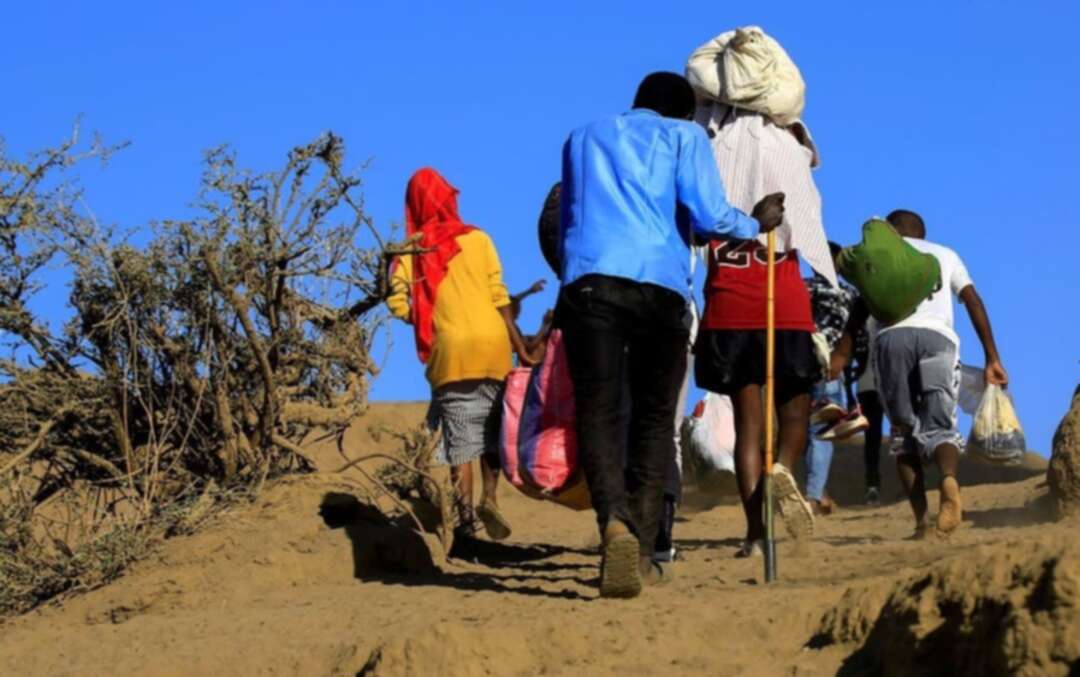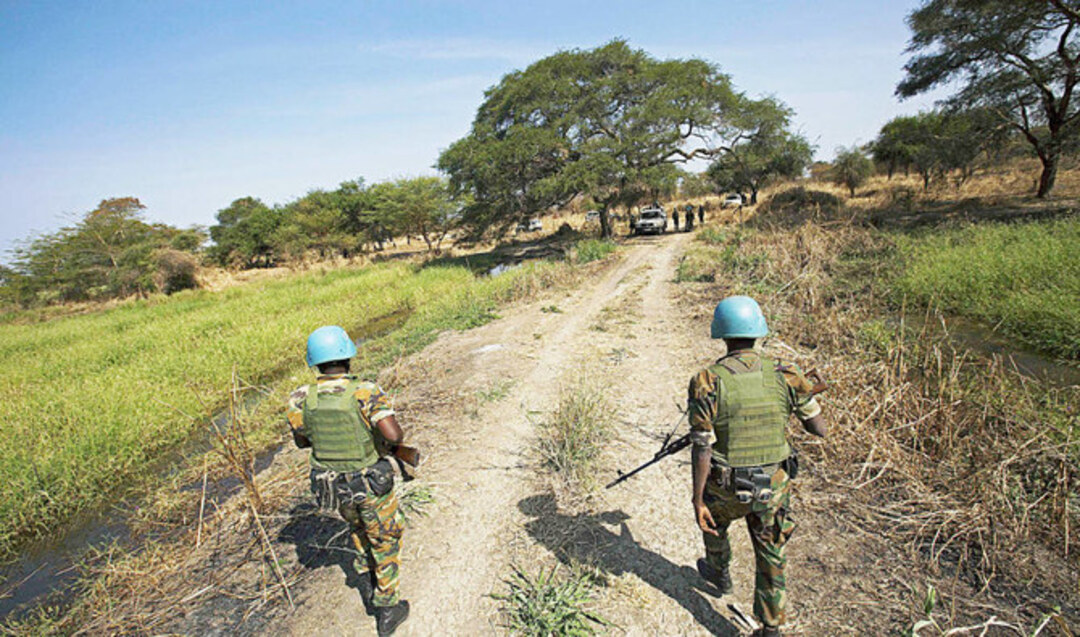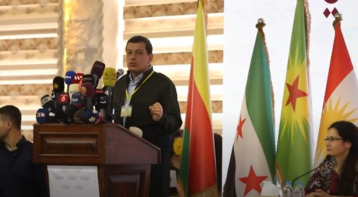-
UN peacekeepers from Ethiopia’s war-torn Tigray seek asylum in Sudan

The Arab News reporetd, citing the AFP, more than 500 UN peacekeepers from Ethiopia’s war-torn Tigray region have refused to return home, citing fears for their safety and highlighting deepening ethnic fissures as they request political asylum in Sudan.
Until last year, Ethiopian forces accounted for the vast majority of the around 4,000-member peacekeeping mission in Abyei (UNISFA), a disputed border region between Sudan and South Sudan.
The Ethiopian contingent was replaced by a multinational force as ties between Addis Ababa and Khartoum deteriorate over a territorial dispute and Ethiopia’s mega-dam on the Blue Nile, which Sudan fears will threaten its access to water.
A UN peacekeeping spokesperson told AFP in New York that most of the Ethiopian forces have returned home, but some have now requested asylum.

The spokesperson said: “A number of peacekeepers have chosen not to return and are seeking international protection. They are being protected by the UN in a secure location."
“The responsibility to grant asylum lies with the Sudanese authorities who are being assisted by the United Nations High Commissioner for Refugees (UNHCR) in receiving these individuals.”
A total of 528 Ethiopian soldiers from Tigray have requested asylum in Sudan, according to Major Gebre Kidane, a Tigrayan ex-peacekeeper — a figure confirmed by two of his comrades also contacted by AFP.
Starvation kills nearly 200 young children in Tigray hospitals
“It’s not secure to go back to Ethiopia and we want to be the voice of the people of Tigray” before the international community, the 40-year-old told AFP in a telephone interview from Abyei, explaining his decision to apply for asylum in early March.
Since Prime Minister Abiy Ahmed sent troops into Tigray in November 2020 in response to what he said were rebel attacks on army camps, the conflict has divided the multi-ethnic nation.
An early victory against the Tigray People’s Liberation Front — which ruled Ethiopia for nearly 30 years until 2018 — was followed by a rebel comeback last June, when they took back control of Tigray and expanded into neighboring regions.
Rebels from Tigray region take Lalibela, a Unesco world heritage site
Since then the war has dragged on, with essential services shut in Tigray for several months while aid trickles in at a snail’s pace after both sides agreed to a conditional humanitarian truce in late March.
According to the UN, he region of 6 million people — around 6 percent of Ethiopia’s population — has been under at de facto blockade.
Tigrayan officers were purged from federal army ranks soon after the war erupted while ordinary Tigrayans have described being subjected to arbitrary arrests in Addis Ababa.
Bodies with gunshot wounds found in river between Ethiopia’s Tigray and Sudan
Gebre Kidane, who has been based in Abyei since July 2020, said: “Peacekeepers from Tigray previously went back to Ethiopia. Some of them were arrested, some killed."
“The people of Tigray have been living in darkness and the international community is watching in silence. We want to make the international community ... pay attention.”
The Ethiopian government has not responded to AFP’s calls for comment on the troops’ request for asylum.
A second Tigrayan officer told AFP that he too had asked for asylum like his comrades but refused to say anything further for fear of reprisals against his family.
U.N. Warns Of Worsening Famine, More Clashes In Ethiopia's Tigray
A third soldier, who spoke to AFP on condition of anonymity for similar reasons, said he had asked for asylum “to express my strong opposition” to the federal government’s treatment of Tigrayans.
Furthermore, he said senior officers like him “have a military background and knowledge ... therefore we are considered as a main challenging force by the government.”
He said: “So we are being targeted to be eliminated."
Britain urge fighting parties to end violence in Tigray and allow humanitarian aids
His children understood his reasons for staying out of Ethiopia, he explained: “If I go there, they know what will happen (to me).”
He said: “We are now in the good hands of UNHCR," adding: “I hope for the better tomorrow to come.”
Source: arabnews
You May Also Like
Popular Posts
Caricature
BENEFIT Sponsors BuildHer...
- April 23, 2025
BENEFIT, the Kingdom’s innovator and leading company in Fintech and electronic financial transactions service, has sponsored the BuildHer CityHack 2025 Hackathon, a two-day event spearheaded by the College of Engineering and Technology at the Royal University for Women (RUW).
Aimed at secondary school students, the event brought together a distinguished group of academic professionals and technology experts to mentor and inspire young participants.
More than 100 high school students from across the Kingdom of Bahrain took part in the hackathon, which featured an intensive programme of training workshops and hands-on sessions. These activities were tailored to enhance participants’ critical thinking, collaborative problem-solving, and team-building capabilities, while also encouraging the development of practical and sustainable solutions to contemporary challenges using modern technological tools.
BENEFIT’s Chief Executive Mr. Abdulwahed AlJanahi, commented: “Our support for this educational hackathon reflects our long-term strategic vision to nurture the talents of emerging national youth and empower the next generation of accomplished female leaders in technology. By fostering creativity and innovation, we aim to contribute meaningfully to Bahrain’s comprehensive development goals and align with the aspirations outlined in the Kingdom’s Vision 2030—an ambition in which BENEFIT plays a central role.”
Professor Riyadh Yousif Hamzah, President of the Royal University for Women, commented: “This initiative reflects our commitment to advancing women in STEM fields. We're cultivating a generation of creative, solution-driven female leaders who will drive national development. Our partnership with BENEFIT exemplifies the powerful synergy between academia and private sector in supporting educational innovation.”
Hanan Abdulla Hasan, Senior Manager, PR & Communication at BENEFIT, said: “We are honoured to collaborate with RUW in supporting this remarkable technology-focused event. It highlights our commitment to social responsibility, and our ongoing efforts to enhance the digital and innovation capabilities of young Bahraini women and foster their ability to harness technological tools in the service of a smarter, more sustainable future.”
For his part, Dr. Humam ElAgha, Acting Dean of the College of Engineering and Technology at the University, said: “BuildHer CityHack 2025 embodies our hands-on approach to education. By tackling real-world problems through creative thinking and sustainable solutions, we're preparing women to thrive in the knowledge economy – a cornerstone of the University's vision.”
opinion
Report
ads
Newsletter
Subscribe to our mailing list to get the new updates!






















